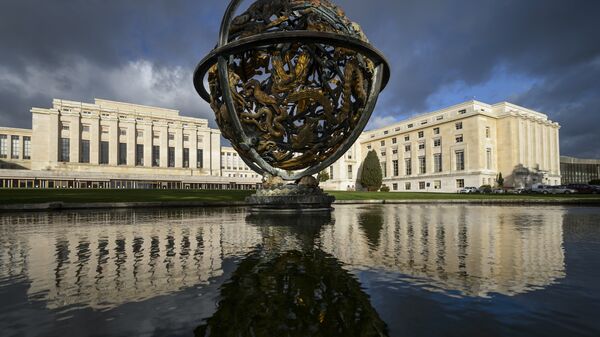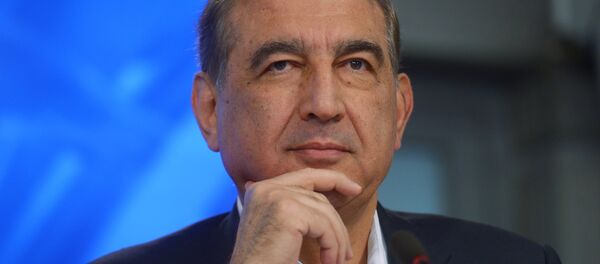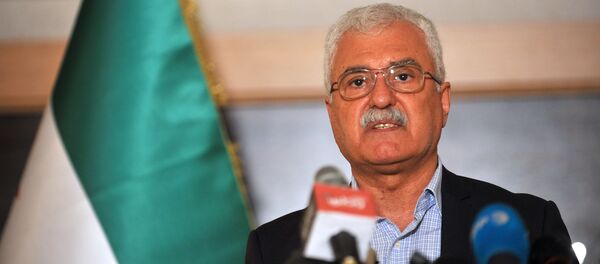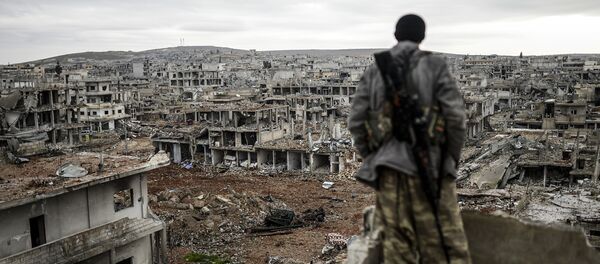GENEVA (Sputnik) — The UN Security Council resolution 2254 of December 18, 2015 stipulated the launch of the intra-Syrian negotiations in January.
The discussions on the Syrian crisis settlement that will last at least six months with a number of interruptions will not be direct. The talks will be devoted to the creation of a transitional government, constitutional review and future elections in the country. The participants of the intra-Syrian meetings will pay meticulous attention to the implementation of ceasefire and humanitarian issues.
This Is Not Geneva 3!
Anticipating possible tensions between the Syrian conflicting parties, the UN special envoy said that the talks would not be direct. De Mistura will carry out the so-called shuttle diplomacy, alternately meeting with the delegations. This method has already been tested during several months of consultations on Syria in Geneva in the summer of 2015.
The first part of the negotiations will last approximately two-three weeks. After that, the participants will be given time for consultations both with their supporters and among themselves on the next steps.
"The important thing is to keep up the momentum. The name of the game is to be as creative and flexible as possible," de Mistura told reporters on Monday.
Who Will Participate?
The Geneva talks will begin on Friday afternoon, Khawla Mattar, the spokeswoman for the UN Syria envoy, said Thursday. By that time, the Syrian government delegation will arrive in the Swiss city, she explained.
Sabra insisted that the delegation would head for Geneva "only after all obstacles that hamper the start of the negotiation process have been eliminated."
The full-scale negotiations between the country’s opposition and government will begin on February 1, one of the leaders of the Syrian Popular Front for Change and Liberation, Qadri Jamil, told Sputnik.
Kurds Barred From Syria Peace Talks
A separate issue in question is the participation in the negotiations of the Syrian Kurds. Both the United States and Russia have been consistently supporting their participation in the settlement of the Syrian crisis. Moscow, in particular, believes that without Kurds, including the Syrian ones, Syrian conflict-resolution will not be efficient.
On Tuesday, French Foreign Minister Laurent Fabius confirmed that UN envoy Staffan de Mistura had not invited representatives of Syria's Kurdish Democratic Union Party (PYD) to the Friday Geneva talks.
"I believe that without [PYD] and without this participant, the talks cannot bring the result we are wishing for — a final political settlement in Syria," Russian Foreign Minister Sergei Lavrov said at his annual press conference, commenting on the decision to leave Kurds beyond the Syrian peace process.
As the largest ethnic minority in Syria, Kurds that amount to nearly 9 percent of the population, stays out the talks, the broad representation at the upcoming negotiations in Geneva is a major issue.
The UN special envoy, nevertheless, has at least six months to try to discuss the future of Syria with all the sides of the Syrian settlement and to avoid the mistakes of previous meetings in Geneva.




